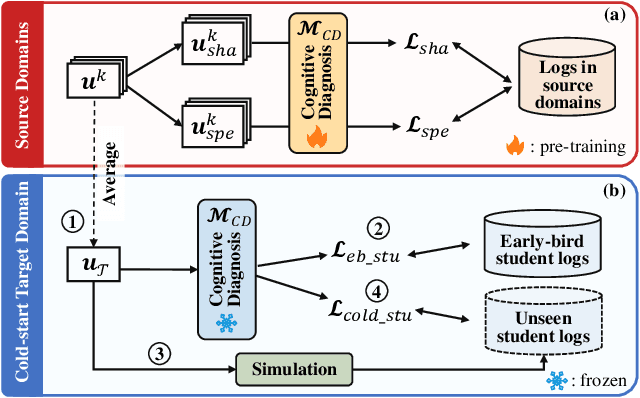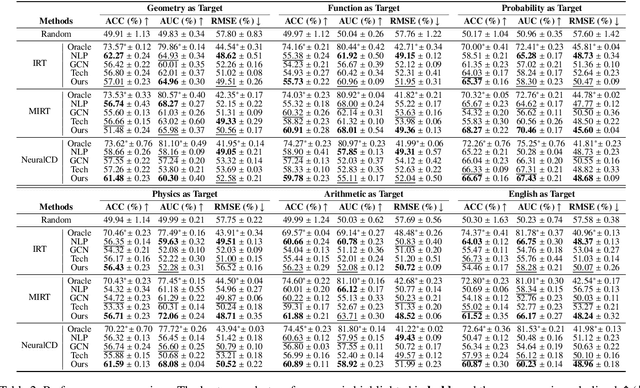Zero-1-to-3: Domain-level Zero-shot Cognitive Diagnosis via One Batch of Early-bird Students towards Three Diagnostic Objectives
Paper and Code
Dec 22, 2023



Cognitive diagnosis seeks to estimate the cognitive states of students by exploring their logged practice quiz data. It plays a pivotal role in personalized learning guidance within intelligent education systems. In this paper, we focus on an important, practical, yet often underexplored task: domain-level zero-shot cognitive diagnosis (DZCD), which arises due to the absence of student practice logs in newly launched domains. Recent cross-domain diagnostic models have been demonstrated to be a promising strategy for DZCD. These methods primarily focus on how to transfer student states across domains. However, they might inadvertently incorporate non-transferable information into student representations, thereby limiting the efficacy of knowledge transfer. To tackle this, we propose Zero-1-to-3, a domain-level zero-shot cognitive diagnosis framework via one batch of early-bird students towards three diagnostic objectives. Our approach initiates with pre-training a diagnosis model with dual regularizers, which decouples student states into domain-shared and domain-specific parts. The shared cognitive signals can be transferred to the target domain, enriching the cognitive priors for the new domain, which ensures the cognitive state propagation objective. Subsequently, we devise a strategy to generate simulated practice logs for cold-start students through analyzing the behavioral patterns from early-bird students, fulfilling the domain-adaption goal. Consequently, we refine the cognitive states of cold-start students as diagnostic outcomes via virtual data, aligning with the diagnosis-oriented goal. Finally, extensive experiments on six real-world datasets highlight the efficacy of our model for DZCD and its practical application in question recommendation.
 Add to Chrome
Add to Chrome Add to Firefox
Add to Firefox Add to Edge
Add to Edge